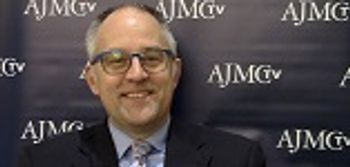
Because Medicaid programs are so diverse from state to state, expansion may not cause such a radical departure from the current status, says Matt Salo, executive director of the National Association of Medicaid Directors.

Because Medicaid programs are so diverse from state to state, expansion may not cause such a radical departure from the current status, says Matt Salo, executive director of the National Association of Medicaid Directors.

Accountable care organizations all over the country have shown that no single method can work for every system, said Risa Lavizzo-Mourey, MD, MBA, outgoing president and CEO of the Robert Wood Johnson Foundation.

Project ECHO aims to boost provider self-efficacy while lowering costs, explained Mark Lovgren, director of Telehealth Services at Oregon Health and Science University. He hopes the program will expand to cover additional chronic conditions in the future.
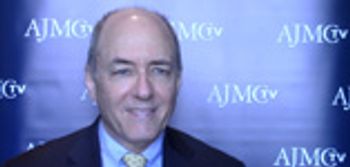
Using precision medicine to implement clinical decisions can help healthcare providers achieve the triple aim, said Leonard M. Fromer, MD, FAAFP, executive medical director of the Group Practice Forum.

After CMS released its proposed rule for the Medicare Access and CHIP Reauthorization Act, it received overwhelming feedback from clinicians that spurred the agency to make a number of changes for the final rule, according to Kate Goodrich, MD, director of the Quality Measurement and Value-Based Incentives Group in CMS.
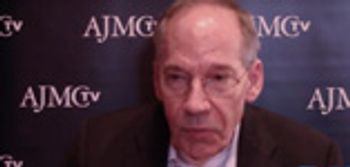
Hospital consolidation is a common practice, but its benefits can often be accomplished through other mechanisms, said Paul B. Ginsburg, PhD, the Leonard D. Schaeffer Chair in Health Policy Studies at the Brookings Institution and a professor of health policy at the University of Southern California.

Health information technology not only gives providers easier access to a patient’s medical history and prior test results in a timely manner, but it allows patients to become more actively engaged in their care, explained Wen Dombrowski, MD, MBA.
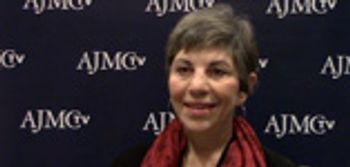
During the presidential election, healthcare will be top of mind especially for patients with access issues or significant health issues, Eleanor Perfetto, PhD, senior vice president of strategic initiatives for the National Health Council. As long as patients feel the healthcare system is engaging them and listening to them, they don't care what it is called.
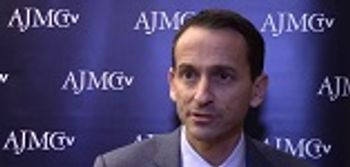
CMS' decision to pay for the Diabetes Prevention Program marks a shift in payment models from one that originally only paid for the screening and treatment of diabetes to one that now weighs prevention just as seriously in diabetes care, Mike Payne, MBA, MSci, chief healthcare development officer at Omada Health.
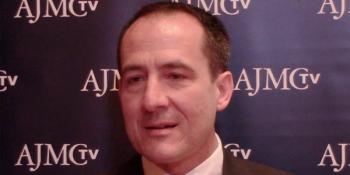
As the healthcare system adjusts to the transition to value-based care, providers in particular are having a hard time keeping up with all of the changes, said Andrei Gonzales, director of value-based reimbursement initiatives at McKesson Health Solutions.

CMS has a number of mechanisms in place to help physicians successfully adapt to the Merit-based Incentive Payment System (MIPS) under the Medicare Access and CHIP Reauthorization Act (MACRA), according to Kate Goodrich, MD, director of the Quality Measurement and Value-Based Incentives Group in CMS. These efforts include funding practice transformation and quality improvement networks as well as building partnerships with medical societies.
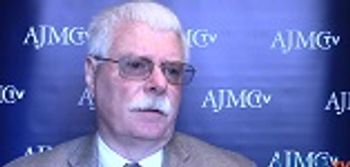
Value-added services are those that improve the patient’s outcome while also being financially efficient, explained Roger Kathol, MD, president of Cartesian Solutions, Inc., and adjunct professor of psychiatry at the University of Minnesota.
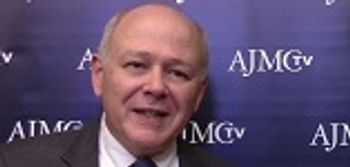
Obesity is more than just a lifestyle disease. Ted Kyle, RPh, MBA, principal at ConscienHealth, explained that understanding its complexities as well as the behavioral and physical care it requires is essential in improving the health and productivity of employees.
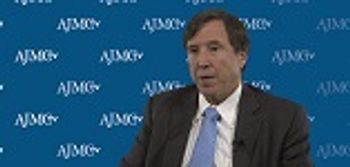
Oncologists are aware of the various value frameworks that have popped up recently, but they are still in the first phase and many oncologists have issues with the frameworks, said Andrew L. Pecora, MD, FACP, CPE, chief innovation officer professor and vice president of cancer services at the John Theurer Cancer Center.
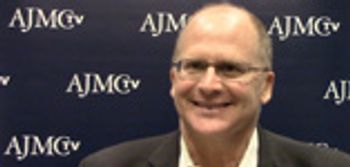
Some exciting developments in value-based insurance design (VBID) have been the introduction of clinically nuanced cost sharing in Medicare Advantage programs, as well as the alignment of demand-side and supply-side payment reform initiatives, according to A. Mark Fendrick, MD, director of the Center for Value-Based Insurance Design at the University of Michigan.

Healthcare providers need to agree on a definition of value, but that discussion must include the voice of the patient, according to Eleanor Perfetto, PhD, senior vice president of strategic initiatives for the National Health Council. Patient input is especially important when the conversation results in a decision that could affect access to care.

Increasing numbers of physicians are learning of the Choosing Wisely initiative through their specialty societies, said Daniel Wolfson, executive vice president and chief operating officer of the ABIM Foundation. Awareness has also been boosted by journal articles on the program’s goal of reducing low-value care.

Part of the reluctance to reimburse for telemedicine is that policy makers aren’t aware of the wide range of evidence that currently exists and supports increasing reimbursement for telemedicine, said Kristen McGovern, JD, partner at Sirona Strategies.
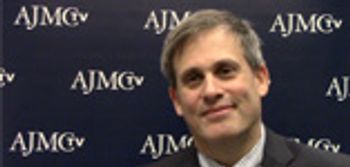
The Affordable Care Act has helped reduce uninsurance, but has replaced it with underinsurance. Michael E. Chernew, PhD, the Leonard D. Schaeffer Professor of Health Care Policy and director of the Healthcare Markets and Regulation Lab in the Department of Health Care Policy at Harvard Medical School, explains how to address this new problem

Karin VanZant, executive director of Life Services at CareSource, said that social needs are inherently interconnected and by focusing on 1 particular area, the various other factors are bound to be addressed as well.

Individualized medicine can complement the principles of population health to deliver better results for patients, according to Leonard M. Fromer, MD, FAAFP, executive medical director of the Group Practice Forum.

Risk adjustment has many variables and cannot always level the playing field between hospitals, said Ashish K. Jha, MD, MPH, the K.T. Li Professor of Health Policy at the Harvard T.H. Chan School of Public Health and the director of the Harvard Global Health Institute.
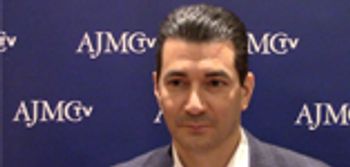
Patient-Centered Oncology Care offers attendees the opportunity to meet and interact with high-level people from various segments of the healthcare industry, explained Scott Gottlieb, MD, resident fellow at the American Enterprise Institute.

Medicaid programs provide hepatitis C treatments to needy patients despite the high price, said Matt Salo, executive director of the National Association of Medicaid Directors. He is optimistic that having more manufacturers in the market will bring costs down and make treatment more accessible for all.
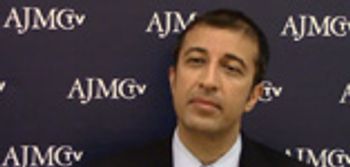
When patients develop skin cancers on the nose, Mohs surgeons have to remove the tumor while reconstructing the nose. This surgery heals relatively quickly unless the tumor has grown deeper into the nasal passages, said Ally-Khan B. Somani, MD, PhD, director of Dermatologic Surgery and Cutaneous Oncology at the Indiana University School of Medicine.

Fitbit Group Health focuses on four areas: corporate wellness, research, insurer programs, and health management, said Ben Sommers, MBA, vice president of North America Business Development at Fitbit Wellness.

One of the positive effects of the Affordable Care Act’s shift to value-based care is that providers and payers are experimenting with a number of new models, so the successful ones are being implemented on a larger scale, according to Andrei Gonzales, director of value-based reimbursement initiatives at McKesson Health Solutions.

Despite increasing mergers, hospitals can stay competitive in consolidated markets by utilizing tiered or narrow networks, said Paul B. Ginsburg, PhD, the Leonard D. Schaeffer Chair in Health Policy Studies at the Brookings Institution and a professor of health policy at the University of Southern California.

Physicians develop biases against obese patients due to inadequate education on obesity during medical school, explained Janine V. Kyrillos, MD, FACP, of Thomas Jefferson University Hospitals and the Sidney Kimmel Medical College. She hypothesized that physicians become frustrated with the lack of solutions they have to offer and then shift the blame onto the patients.
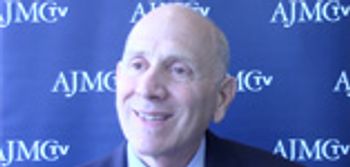
Many institutions and researchers responded to the PAN Challenge call for papers last year, and even more are expected this year, said Daniel J. Klein, president and CEO of the Patient Access Network Foundation. He emphasized that this year’s Challenge is especially important because it can help reduce the financial hardships that many cancer patients often face.

259 Prospect Plains Rd, Bldg H
Cranbury, NJ 08512
© 2025 MJH Life Sciences®
All rights reserved.
